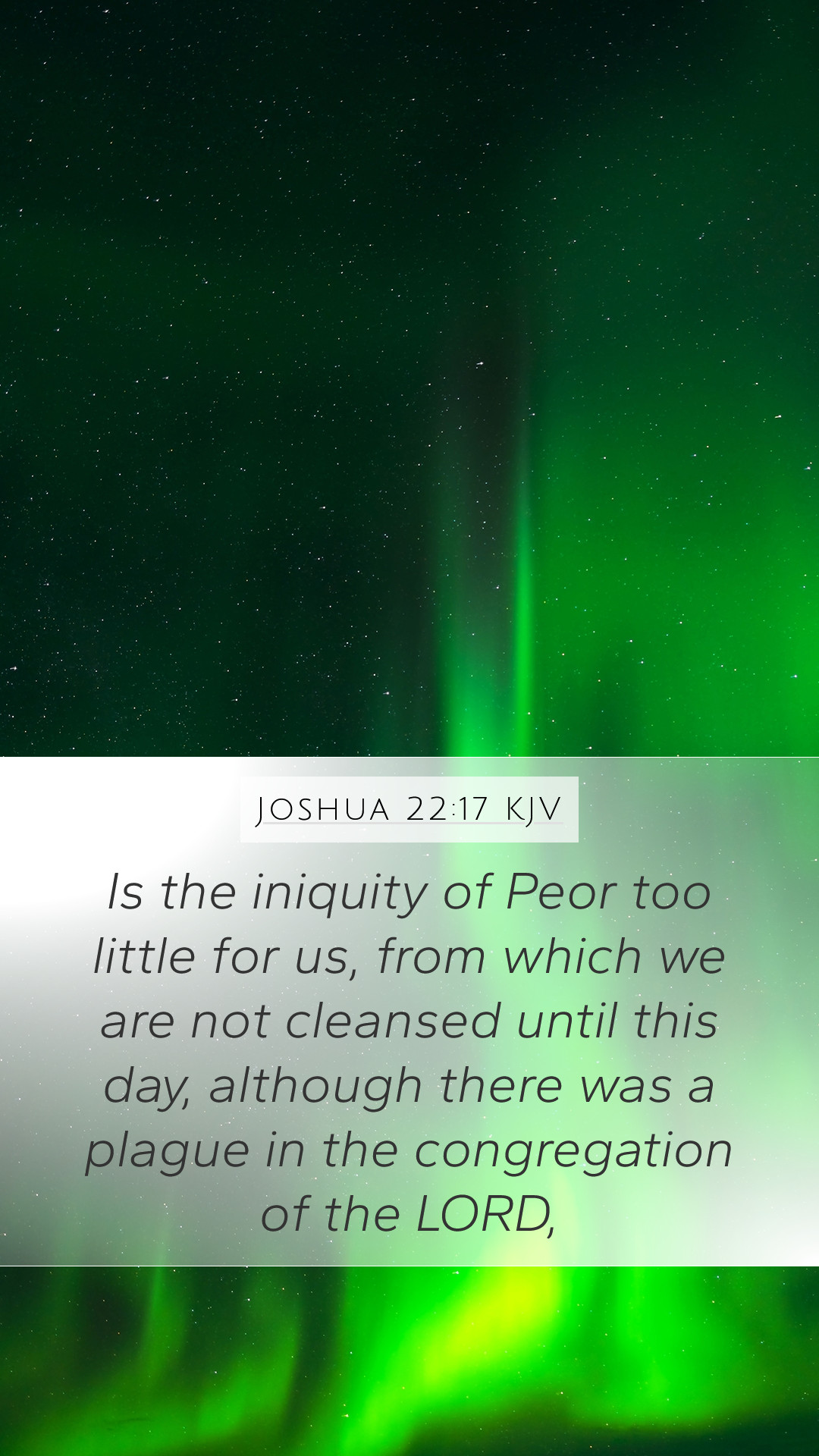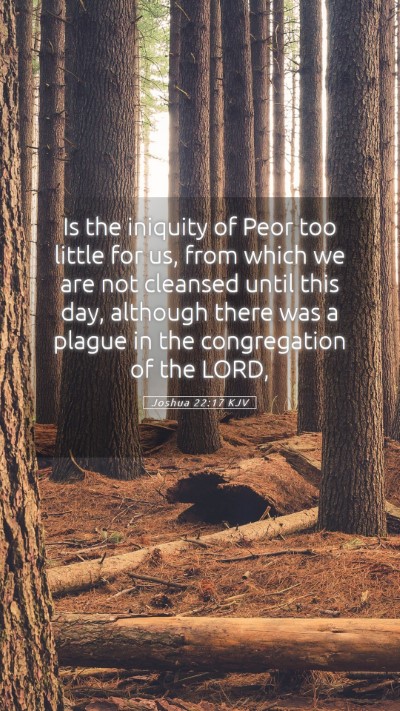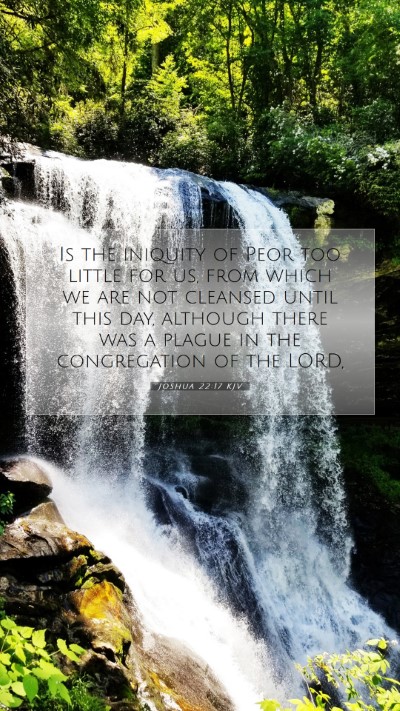Bible Verse: Joshua 22:17
Verse Text: "Is the iniquity of Peor too little for us, from which we are not cleansed until this day, although there was a plague in the congregation of the LORD?"
Meaning and Interpretation
This verse appears in the context of the tribes of Reuben, Gad, and the half-tribe of Manasseh who had settled on the east side of the Jordan River. The leaders of the other tribes were concerned about the potential implications of these tribes erecting an altar that could signify a break in unity and a departure from true worship.
Insights from Public Domain Commentaries
-
Matthew Henry's Commentary:
Henry emphasizes that the mention of Peor refers to the incident where the Israelites sinned with the Moabites, leading to a plague (Numbers 25). He suggests that the concern of the other tribes is reasonable; they fear that if the eastern tribes turn away from God, the same punishment could fall on them all. It indicates the desire to maintain holiness and unity within the community of Israel.
-
Albert Barnes' Commentary:
Barnes points out that the question posed in Joshua 22:17 serves to remind the eastern tribes of their past sins and the consequences that followed. He notes that the "iniquity of Peor" was significant, marking a serious violation of God's law, and highlights the importance of collective accountability within the congregation of Israel.
-
Adam Clarke's Commentary:
Clarke discusses how this verse reflects the serious nature of sin and its lasting impact on both individuals and communities. His analysis suggests that the leaders of Israel are admonishing the eastern tribes to consider the gravity of their actions and align them with the worship and commandments of the Lord.
Broader Biblical Context
The verse is part of a larger narrative in Joshua regarding the distribution of land among the tribes of Israel and addresses concerns about idolatry and unity.
Related Bible Verses:
- Numbers 25:1-9 - The story of Israel's sin at Peor.
- Deuteronomy 4:3-4 - A reminder of the consequences of turning from God.
- Hebrews 3:12-13 - Warning against a sinful heart that turns away from God.
Application and Reflection
This verse challenges believers to consider the impact of their actions not only on themselves but also on their community. The fear of collective responsibility is mirrored in Scripture, encouraging unity and faithfulness to God's commandments. The lasting consequences of sin are a reminder of the importance of pursuing holiness and righteousness in all actions.
Conclusion
In summary, Joshua 22:17 serves as a powerful reminder of the seriousness of sin and the need for unity within the Body of Christ. It encourages reflection on past failures and the need for collective fidelity to God's commandments as a community. Believers are called to understand their actions' significance within the broader context of Scripture, promoting an understanding that engages with the history, teachings, and relational aspects of faith.
SEO Keywords
- Bible verse meanings
- Bible verse interpretations
- Understanding Scripture
- Bible study insights
- Commentary on Joshua 22:17
- Scripture analysis
Additional Insights for Bible Study
For those engaging in online Bible study or in Bible study groups, this verse provides a rich ground for exploring themes of sin, repentance, and communal responsibility. It encourages discussions that delve into the historical context of the Israelites, the significance of unity in worship, and the foundational aspects of God’s covenant with His people.


